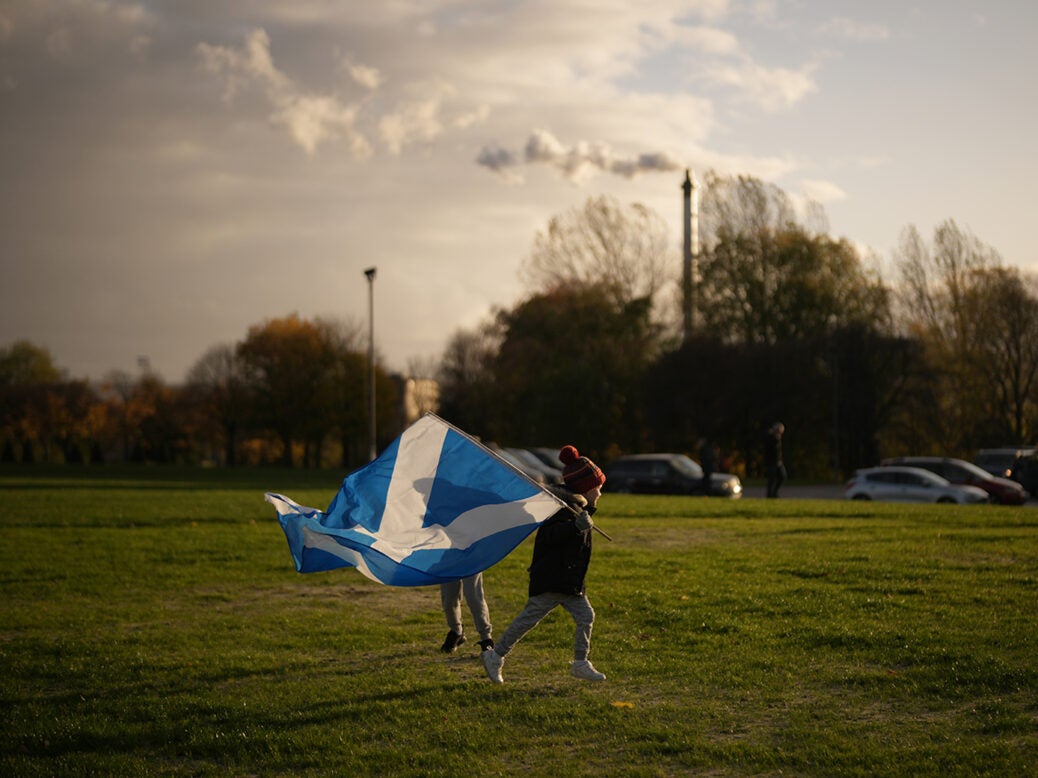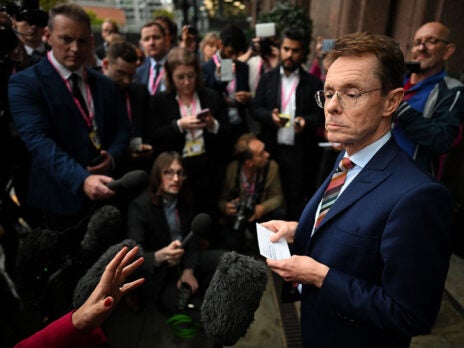
Identities evolve. Be it through demographic change or political events, national and local colours reflect the wearer. I started university in September 2016, mere months after the UK’s Brexit vote and it was there that I saw an emerging sea of EU flags on campus and in the windows of student homes – flags I hadn’t seen quite so prominently during the actual referendum campaign. I doubt this loud Europeanism would have been quite so loud had Britain voted Remain. Here was an identity crafted in response to the nation’s majority vote, and in Scotland today there appears to have been a similar effect.
Brexit helped galvanise Scotland’s “Yes” voters into restarting the debate on a second referendum with renewed vigour. Since that first poll in 2014, Scottish politics has, to state the obvious, undergone dramatic change (with the SNP all but wiping out Labour’s Scottish presence at Westminster) but so too have voters’ identities. In 2012, just 31 per cent of Scots said they were Scottish, not British. But a decade later, that figure has risen to 44 per cent, a 13-point increase. The number saying they are more Scottish than British now sits at 28 per cent, putting the overall figure of Scots who identify primarily as Scottish at 72 per cent, up from 57 per cent in 2012.
The share of Scots who identify as primarily British now stands at just 4 per cent, down from 11 per cent in 2012. To me, this emboldenment of Scottish feeling comes from the 2014 vote and, perhaps more poignantly, from the unique status of being the only nation in Great Britain to vote to stay in the EU.
Figures such as these should serve as evidence enough as to why future pro-Union campaigns would be foolish to stake everything on Britishness, a call seemingly made only by those south of the Watford Gap, let alone Hadrian’s Wall. Britishness is not, and has not been, the primary identity of Scots for quite some time now, and it would be electorally reckless for any pro-Union campaign to dismiss this.
The retreat of Britishness, however, should not be interpreted as evidence of a nation ready to embrace independence. Polls still show a country split between Yes and No, and the more granular surveys emphasise that voters are most anxious about going it alone. While Britishness might not have as big a pull as it once did, the perceived benefits of cooperation, be it on security, pensions or the economy, do.
The YouGov polling shown above, commissioned by These Islands, illustrates the sway that economic issues hold over voters. Delving deep into the tables suggests that reassurances of no spending cuts may swing voters to Yes. But the hypotheticals of “more likely” and “less likely” in polling have little form for election-result accuracy, so treat that with caution.
At any rate, past, present and future campaigns on Scottish independence won’t be fought on identity as much as more distant onlookers may think. It will be less a debate over Scottishness against Britishness but rather a conflict of perceived safety, be it financial or otherwise. Will “Britain” – whatever it is – be seen as a safe and welcoming haven for Scots or not?


